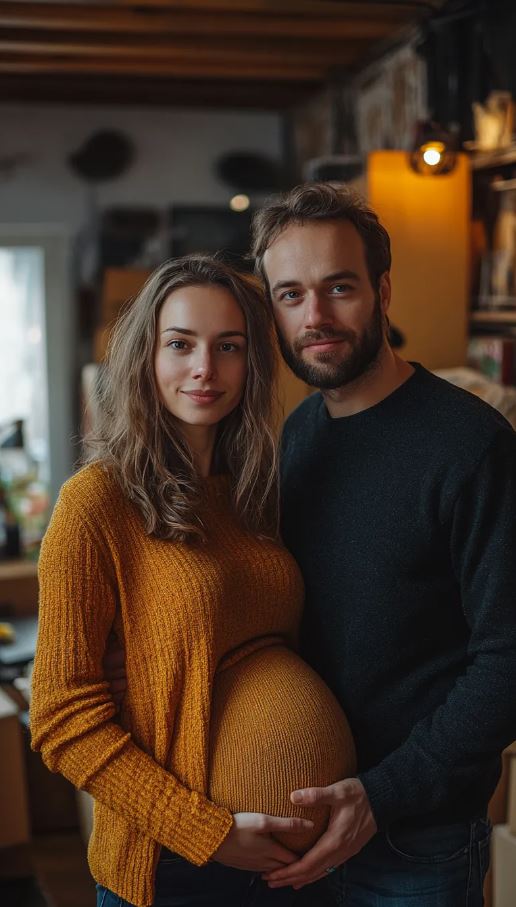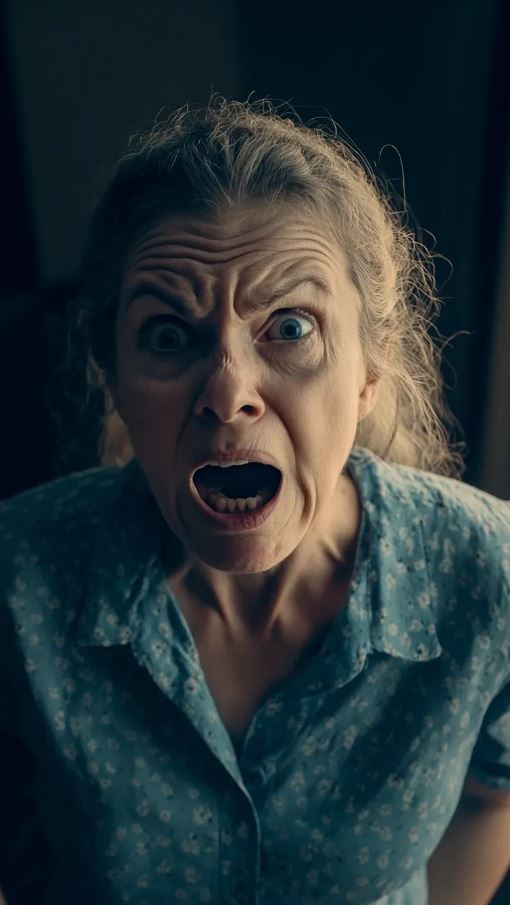I always thought motherhood would be the most beautiful chapter of my life.
I used to sit on our small balcony, hand on my swelling belly, imagining how it would feel when our baby arrived. I imagined soft cries echoing through the house at midnight, gentle coos in the morning light, and my husband—Daniel—smiling at me as we took turns rocking our child to sleep. I pictured us closer than ever, like partners in a sacred, unbreakable bond. That’s how it should be when you bring life into the world… right?
But I was wrong.
So very wrong.
Our baby, Ella, was born on a rainy Tuesday night after thirty-seven hours of grueling labor. The doctors said it was one of the most complicated deliveries they’d seen in years. I h.e.m.orrhaged. I f.l.atlined—for two terrifying minutes. When I finally came to, my body trembling, my lips dry and cracked, the nurse whispered to me, “You’re lucky to be alive.” I should have felt victorious. I should have felt joy, cradling the tiny life I had fought so hard to bring into the world.

But Daniel wasn’t there.
He came the next morning, carrying a lukewarm cup of coffee and wearing the same sweatshirt he always wore when he didn’t want to be bothered. His eyes flicked toward Ella, asleep in the hospital bassinet, and then to me. No kiss. No hug. No tears of relief.
Just a cold, stiff nod. “You look tired.”
I wanted to believe he was just in shock, that the weight of almost losing me hadn’t settled yet. But deep down, I knew. Something had shifted. And then came the slow unraveling of everything I had once believed to be true.
Daniel’s mother—Helen—had always been a presence. From the day we got engaged, she had opinions about everything. The dress. The venue. The guest list. I was willing to compromise back then. I thought it was just her way of showing she cared. Daniel always said, “That’s just how she is,” as if that excused everything.
But “how she is” became t.o.xic.
She had a key to our house “in case of emergencies,” though somehow she always found an excuse to drop by unannounced. She reorganized my kitchen when I wasn’t home. Criticized my cooking. When I got pregnant, she ramped up the control tenfold. Suddenly, she was planning our nursery, dictating what prenatal vitamins I should take, and telling Daniel we should name the baby after her mother—Gertrude.
I said no.
She didn’t like that.
Neither did Daniel.
I tried to set boundaries. I told her, gently at first, then more firmly, that this was our baby. My body. Our decisions. But she would just smile that tight-lipped smile of hers and say, “You’ll understand when you’re a mother.”

But now I am a mother. And I understand all too well.
Three weeks after we brought Ella home, I found myself standing on our front porch, my baby wrapped in a thin blanket, cold wind biting at my cheeks, while Daniel told me I needed to “go stay somewhere else.”
“Just for a while,” he said, refusing to look me in the eye. “My mom’s really stressed. She thinks it’s best.”
Best for who?
Apparently, Helen had decided I was “emotionally unstable” after the birth. She told Daniel I wasn’t bonding properly with Ella. That I was ungrateful. That I was a danger to myself and the baby.
None of it was true.
Postpartum recovery is brutal, yes. But I was doing everything. Feeding. Changing. Holding Ella through her colicky nights while Daniel snored with a pillow over his head. I barely slept, barely ate. I cried in the shower so no one would hear me.
And still, I loved my daughter fiercely.
Helen didn’t care. She just wanted control. She wanted the baby—and not the inconvenience of the woman who birthed her.
The final straw came the night I found Helen in our nursery, rocking Ella in the chair I had picked out, whispering to her, “Don’t worry. Grandma’s going to take care of you. Mommy won’t be around forever.”
I froze in the hallway.
The words hung in the air like smoke.
When I confronted her, she accused me of eavesdropping. She called me paranoid. Hysterical. “I think you need help,” she told me. “And until you get it, you shouldn’t be alone with that baby.”
I expected Daniel to defend me. He didn’t.
He stared at the floor, jaw clenched, as if ashamed. But not of her.
Of me.
“I think maybe she’s right,” he finally said.
My knees gave out. I sat on the floor and cried. Not because I was weak. But because I realized then—I had already lost him. To her.
So here I am.
At my sister’s house now. On her lumpy couch, with Ella in my arms. My stitches are barely healed. My heart is raw. But I’m not broken.
Because I survived.
And my daughter is safe.
I don’t know what comes next. Lawyers. Custody battles. Starting over. It’s all terrifying. But every time Ella looks up at me with those bright, searching eyes, I know I did the right thing by leaving.
I always dreamed that having a baby would bring us closer.
And it did.
Just not to Daniel.
To her—my daughter. My light. My reason.
